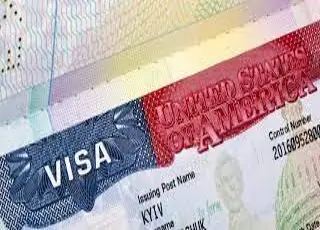
WASHINGTON, CMC – The United States government on Wednesday said it has taken steps to impose visa restrictions on Grenadian government officials and their family members for their complicity in the Cuban regime’s medical mission scheme.
The US State Department said that the measures will also target African and Cuban government officials. The statement did not name any of the officials from the three countries.
In a statement, Washington said that these government officials were complicit in the Cuban regime’s medical mission scheme in which medical professionals are ‘rented’ by other countries at high prices, and most of the revenue is kept by the Cuban authorities.
It said that this scheme enriches the corrupt Cuban regime while depriving the Cuban people of essential medical care.
“The United States continues to engage governments and will take action as needed to bring an end to such forced labour. We urge governments to pay the doctors directly for their services, not the regime slave masters,” according to the US State Department statement.
“The United States aims to support the Cuban people in their pursuit of freedom and dignity and promote accountability for those who perpetuate their exploitation. We call on all nations that support democracy and human rights to join us in this effort to confront the Cuban regime’s abuses and stand with the Cuban people,” the statement added.
When Washington first raised the issue of the Cuban medical brigade, several CARICOM leaders publicly said they were prepared to have the United States revoke their visas.
St Vincent and the Grenadines Prime Minister Dr Ralph Gonsalves noted that at least 60 people in the small island nation are on a Cuban-run haemodialysis programme used to treat kidney failure.
“If the Cubans are not there, we may not be able to run the service,” he said, adding that Cuban personnel are paid the same as locals. “I would prefer to lose my visa than to have 60 poor and working people die.”
Barbados Prime Minister Mia Mottley said she is prepared to have her United States visa revoked as she urged CARICOM countries to ensure that they can explain “what the Cubans have been able to do for us” as they seek to defend the Cuban health brigade programme.
“This matter, with the Cubans and the nurses, should tell us everything that we need to know. Barbados does not currently have Cuban medical staff or Cuban nurses, but I will be the first to go to the line and to tell you that we could not get through the (COVID-19) pandemic without the Cuban nurses and the Cuban doctors,” Mottley said in a statement in Parliament.
Caribbean Foreign ministers defended the Cuban health programme and the benefits it offered and voiced concern about the impact of US policies and the embargo on the Cuban people.
Expressing support for Cuba’s medical programmes, Grenada’s Foreign Affairs Minister, Joseph Andall, on March 11 during the island’s budget debate, said that the island not only has a “legal, moral and ethical” obligation to stand by the people of Cuba, but that it should avoid being opportunistic or transactional as it pertains to the relations between the two countries.
“Cuba continues to be a trustworthy friend and partner not only of Grenada, but also of the Caribbean and people the world over. When the COVID-19 pandemic broke out, Cuban doctors went as far as Italy to provide services. I did not hear anybody talk about human trafficking and things like that,” Andall told Parliament.
Since Cuba’s 1959 revolution, its medics have been dispatched to countries around the world, treating diseases that wreak havoc on poor countries, from cholera in Haiti to Ebola in West Africa.

